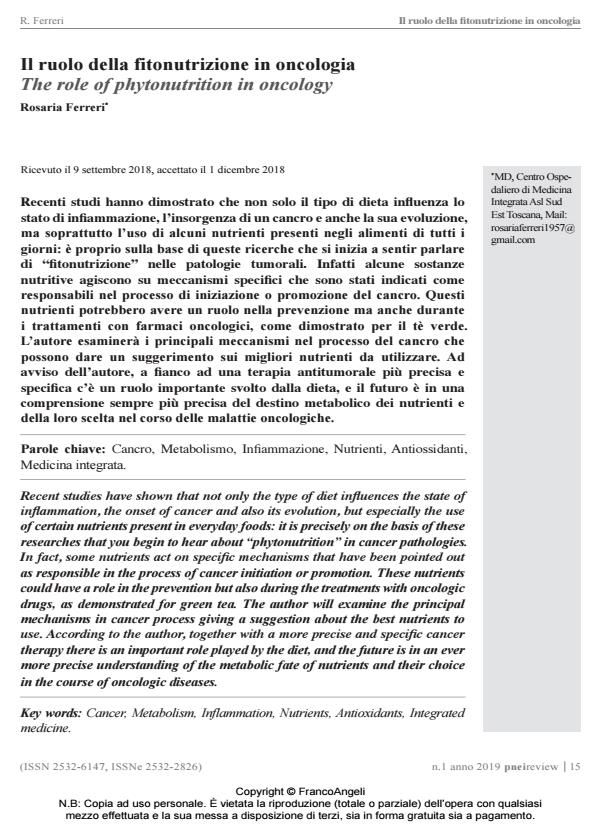The role of phytonutrition in oncology
Journal title PNEI REVIEW
Author/s Rosaria Ferreri
Publishing Year 2019 Issue 2019/1
Language Italian Pages 7 P. 15-21 File size 1084 KB
DOI 10.3280/PNEI2019-001003
DOI is like a bar code for intellectual property: to have more infomation
click here
Below, you can see the article first page
If you want to buy this article in PDF format, you can do it, following the instructions to buy download credits

FrancoAngeli is member of Publishers International Linking Association, Inc (PILA), a not-for-profit association which run the CrossRef service enabling links to and from online scholarly content.
Recent studies have shown that not only the type of diet infl uences the state of infl ammation, the onset of cancer and also its evolution, but especially the use of certain nutrients present in everyday foods: it is precisely on the basis of these researches that you begin to hear about "phytonutrition" in cancer pathologies. In fact, some nutrients act on specifi c mechanisms that have been pointed out as responsible in the process of cancer initiation or promotion. These nutrients could have a role in the prevention but also during the treatments with oncologic drugs, as demonstrated for green tea. The author will examine the principal mechanisms in cancer process giving a suggestion about the best nutrients to use. According to the author, together with a more precise and specifi c cancer therapy there is an important role played by the diet, and the future is in an ever more precise understanding of the metabolic fate of nutrients and their choice in the course of oncologic diseases.
Keywords: Cancer, Metabolism, Inflammation, Nutrients, Antioxidants, Integrated medicine.
Rosaria Ferreri, Il ruolo della fitonutrizione in oncologia in "PNEI REVIEW" 1/2019, pp 15-21, DOI: 10.3280/PNEI2019-001003